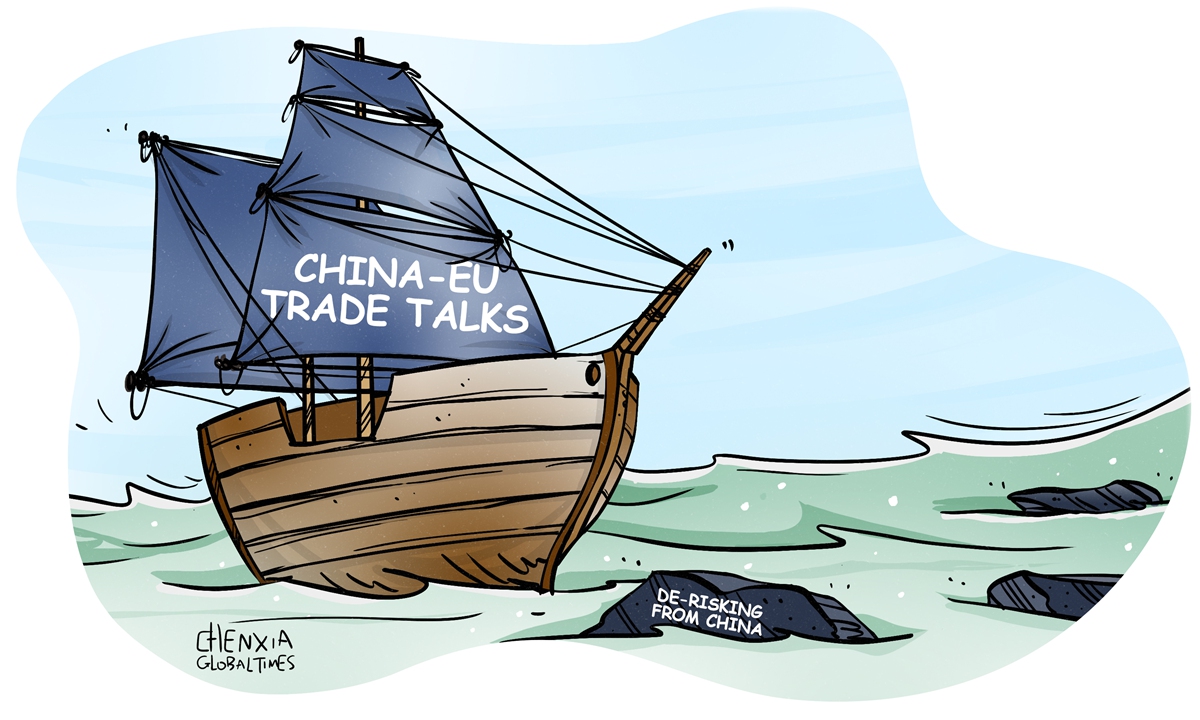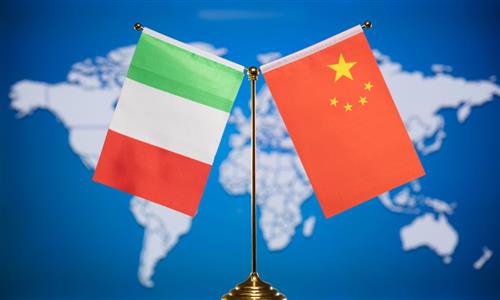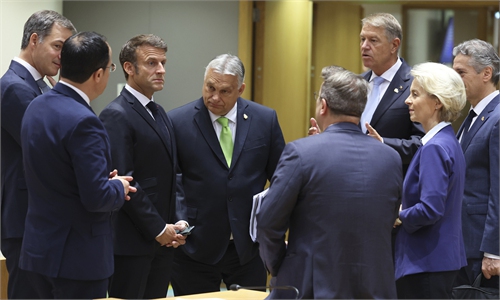
Illustration: Chen Xia/Global Times
EU Ambassador to China Jorge Toledo expressed regret on Sunday over the lack of "substantial progress" in trade talks with Beijing, AFP reported. It does not rule out the possibility that the EU may want to use Toledo's "regret" as a means to exert pressure on China, but, from another perspective, it shows European countries' interest and enthusiasm in restoring trade and investment talks with China, aligning with the hopes of the business community.The economic complementarity between China and the EU creates potential for cooperation in trade and investment. This potential should not be undermined by politicians advocating for "decoupling" or "de-risking" from China. China also hopes to increase trade and investment with European countries, but to break down barriers over trade and investment talks, the ball is in the European's court.
According to AFP, the European Commission has suspended its efforts to get member states and parliament to ratify an investment agreement reached with China at the end of 2020, after seven years of talks, following differences over human rights. It is undeniable that there are differences between China and Europe on certain issues, with the biggest obstacle being political and ideological. Hopefully, European policymakers can maintain strategic sobriety and refrain from viewing economic relations through a geopolitical or ideological lens.
Europe now faces the difficult task of sustaining economic recovery, defeating inflation, and safeguarding financial stability. Amid economic uncertainty, some European politicians still talk extensively about "de-risking" from China. However, what the world actually sees is that Europe is gradually undermining its own economy and mutually beneficial economic cooperation with China, either actively or passively.
According to AFP, Toledo said "we want to engage with China, but we need progress, and we need it this year," adding that a high-level economic dialogue between the two sides would be held in September. Such "progress" does not necessarily refer to the EU-China Comprehensive Agreement on Investment (CAI), but it should be noted that, at present, CAI indeed could help promote cooperation and market confidence between China and Europe.
China and the EU in December 2020 announced the two sides had completed investment agreement negotiations as scheduled. Calling the investment agreement between China and the EU as "balanced, high-standard and mutually beneficial," the Chinese leader said the treaty has shown China's determination and confidence to push high-level opening-up.
China welcomes countries around the world, including those from European countries, to share in the opportunities that come with China's economic growth. Its efforts to further open up its markets will offer potential business opportunities to European companies. However, whether they can seize the chance to gain a greater market share in China depends on not only their business competitiveness with rivals, but also European countries' attitude toward the olive branch offered by China.
What we have observed is that European public opinion on China has become more pragmatic and rational, at least in the short term. Toledo's latest remarks may demonstrate EU's willingness to promote trade and investment talks with China, a stance echoed by a growing number of European elites, who understand that it is against Europe's interests if the EU continues to allow the CAI to be left in limbo. One thing is clear: If the treaty can be promoted in the coming months, it will help stimulate market confidence.
China will open up wider to the rest of the world, but opening-up is a two-way street. Toledo's words, stating that the EU needs progress, and needs it this year, are not a bad thing. However, it requires the EU side to create a positive atmosphere, demonstrate sufficient sincerity and goodwill, abandon de-risking approach, and create a more open and fair business environment for Chinese companies.
The author is a reporter with the Global Times. bizopinion@globaltimes.com.cn



